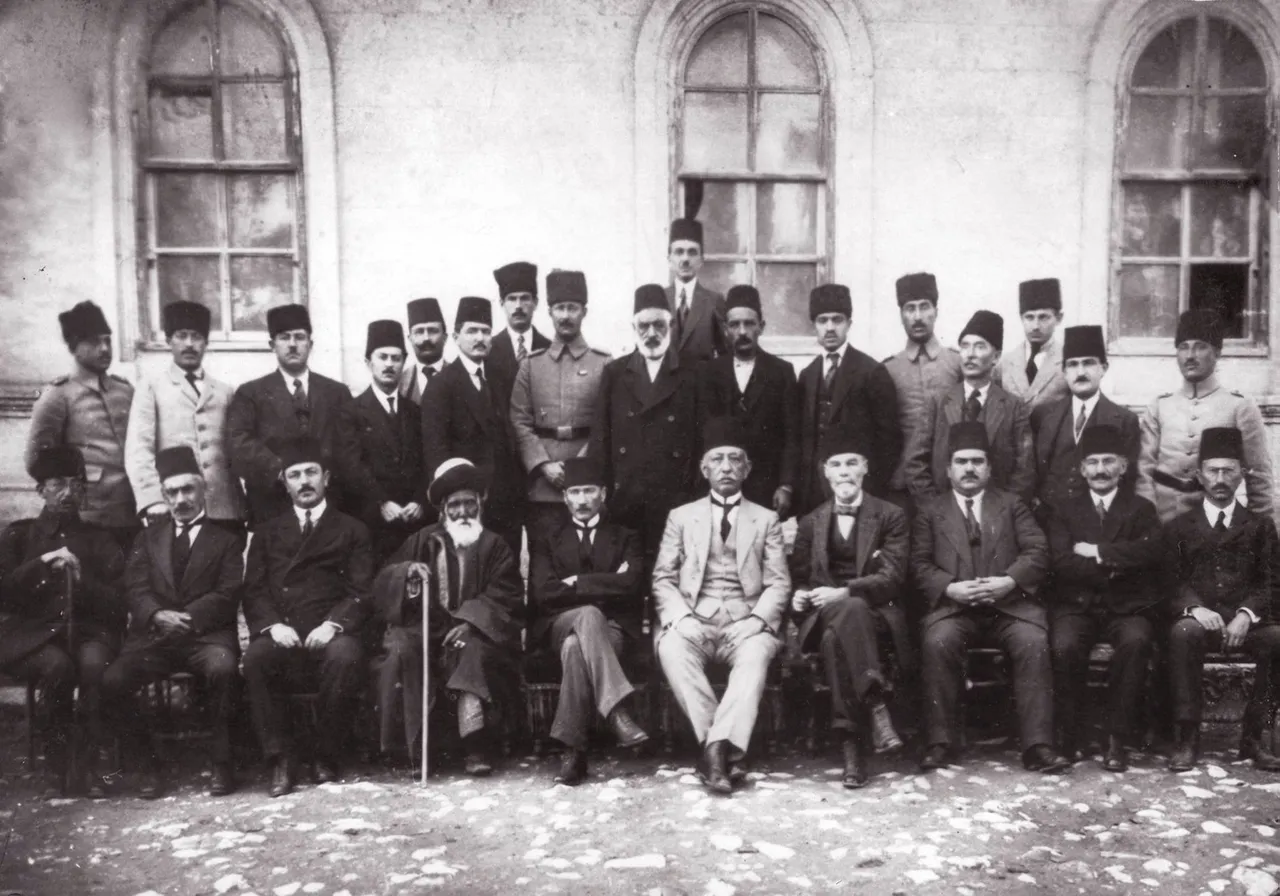On 16 May 1919, Mustafa Kemal Pasha, who departed from Istanbul by ferry to Bandırma, entered the borders of Anatolia in Samsun on the morning of 19 May 1919. The reason for his trip to Anatolia was to "examine and investigate the security incident in Samsun and its surroundings". The British reports to the government stated that the Turks had been engaged in a guerrilla movement against the Greeks and had violated the law.
The actual situation, however, was the opposite. In addition to the ceasefire, the Pontus had begun numerous Greek activities in the region to found the Greek Cypriot state. It was not the Greeks who were oppressed, but the Turks. The Mavri Mira Society, ruled by the Greek Orthodox Patriarchate in Istanbul, oppressed the Turkish villages, there were organised massacres and the deed was to intimidate and drive away the inhabitants. Against these attempts the patriotic Turks formed opposing groups and began to fight against the Greeks of the region. Despite all these facts, the resistance of the Turks in the region was prevented according to the instructions of Mustafa Kemal Pasha. Mustafa Kemal Pasha demanded the role of inspector of the army and broad powers to accept the post, and the government of Istanbul accepted these demands.
The Palace and the government of Istanbul thought that Mustafa Kemal Pasha would carry out this task in the direction they showed. But Mustafa Kemal Pasha planned something completely different. The proposed task was an opportunity to be evaluated, to undoubtedly move to Anatolia.
It would only be a matter of conscience to use the powers conferred upon him for the interests of the nation until he is withdrawn. Before leaving Istanbul, Mustafa Kemal Pasha met with a large number of Cabinet members, notably the Grand Vizier and finally the Sultan. But none of these people had seen the energy, the light of hope that would save the country from the dangerous situation.
He felt the heavy bite of not disturbing the Allied powers in the behavior of the government of Istanbul and the Sultan. However, it was not necessary to abide by the decisions of the occupiers in order to achieve national liberation, but against them. Therefore he saw the opportunity and this purpose attracted him to Anatolia.
Mustafa Kemal Pasha's words to his close friends when he left Istanbul are very important: "There can be no national unity under the enemy bayonet! The independence of the country and the freedom of the nation, however, can be established on the territory of the homeland. I am going to Anatolia to achieve this goal."
Mustafa Kemal Pasha began to implement his plans as soon as he was in Anatolia. On May 21, 1919, he explained this behavior in a telegram to Kazım Karabekir in Erzurum, Samsun:
"I am really sorry for the dangerous situation that affects us all. I started this last ministry because I am firmly convinced that together we will fulfill the guilt we have towards the people and the nation.
On May 21, 1919, two days after his departure for Samsun, Mustafa Kemal Pasha sent the following telegram to the General Staff explaining the reasons for the unrest in Samsun and its environs:
"The Greeks gathered in this region around a nonsense like the formation of the Pontus government, and the Greek gangs were transformed into a political form.
On 22 May 1919, the report sent by Samsun to Sadaret ended with the following sentence:
"The circumstance has led the people to unity with the goal of the sovereignty that the Turks have in the region."
In this meaningful expression it is not possible not to perceive the determination of the National Struggle in Anatolia.
After these reports came to Istanbul, representatives of the Allied Powers asked the government of Istanbul: "What is a well-known Turkish general doing in Anatolia?"
As a result, the government of Istanbul began attempts to recall the inspector sent to Anatolia, Mustafa Kemal Pasha.
The Resistance had now found its leader who would gather the National Struggle, which began in Anatolia, under one flag.
The first step was taken on June 22, 1919 in the form of a letter, also known as the letter of Amasya. Mustafa Kemal Pasha's words:
"The unity of the homeland, the independence of the nation is in danger.
The independence of the nation will only be saved by the effort and decision of the nation. "
These two sentences were certified to the then occupied world with his signature that the national struggle had indeed begun as an organization.
With another letter which set out the first way to be followed in view of the emerging national danger: "With the delegates who had won the trust of the nation to be elected from each province, a National Congress was convened in Sivas, which is currently the safest place in Anatolia".
After Mustafa Kemal Pasha, the famous Amasya letter, had proclaimed to the entire nation, he was received with joy by the people of Sivas. During his stay in the city, he gave the necessary instructions to the leaders and responsible persons, who had appeared, and from there he moved on to Erzurum.




 Part 6
Part 6
